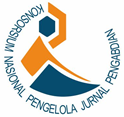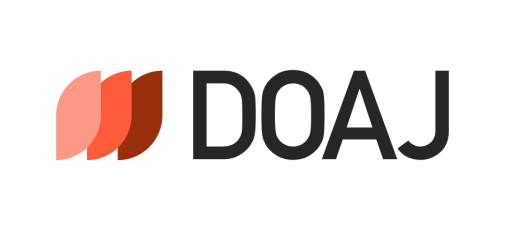Peningkatan Daya Tarik dan Wawasan Wisatawan dengan Pembangunan Eco-Smart Mini Lab Sebagai Wisata Edukasi Alam
Abstract
Penelusuran ragam potensi unggulan di Indonesia tidak akan pernah terlepas dari keindahan alamnya. Masyarakat perkotaan khususnya era millenial saat ini menggandrungi objek wisata yang berkonsep alam atau biasa dikenal dengan ekowisata. Terutama banyaknya potensi wisata alam yang ada di Kabupaten Malang Jawa Timur. Salah satu yang sudah ada yaitu wisata bumi perkemahan bedengan yang terletak di kecamatan Dau Kabupaten Malang. Sesuai dengan bidang dari sebagian besar tim pelaksana, maka disepakati untuk mengembangkan desain Eco-Smart Mini Lab berbasis solar cell sebagai konsep wisata alam edukasi dalam meningkatkan pengetahuan dan daya tarik wisatawan di area bumi perkemahan Bedengan. Eco-Smart Mini Lab berbasis solar cell merupakan bangunan laboratorium mini berkonsep alam yang di dalamnya berisi pengetahuan dan informasi terkait dengan wisata yang ada di Desa Selorejo seperti wisata Bumi Perkemahan Bedengan. Metode yang digunakan pada kegiatan ini yaitu metode demonstrasi dengan pendekatan diskusi kelompok dan studi kasus. Metode demonstrasi dipilih dikarenakan telah tersedianya alat sarana dan prasarana pendukung untuk melakukan pelatihan. Diskusi kelompok dan studi kasus dipilih untuk menentukan permasalahan (trouble) yang akan diambil pada kegiatan ini. Hasil dari kegiatan pegabdian ini meliputi: 1) kegiatan yang telah dilakukan terdiri dari pembuatan Eco-Smart Mini Lab, sosialisasi, dan pelatihan perawatan; 2) adanya peningkatan pendapatan wisata Bedengan meningkat; 3) terjadi peningkatan tata nilai masyarakat terkait dengan lapangan pekerjaan; dan 4) peningkatan wawasan pengunjung terkait dengan pembudidayaan jeruk di Bedengan.
Kata kunci— wisata Bedengan, wisata alam, budidaya jeruk, potensi unggulan daerah
Abstract
Exploring the variety of superior potential in Indonesia will never be separated from its natural beauty. Urban communities, especially the millennial era, currently love tourist objects with a natural concept or commonly known as ecotourism. Especially the large number of natural tourism potentials in Malang Regency. One that already exists is a tour of the bed campground located in Dau sub-district, Malang district. In accordance with the areas of most of the implementing team, it was agreed that a solar cell-based Eco-Smart Mini Lab design would be developed as a concept for educational nature tourism in increasing knowledge and tourist attraction in the Bedengan campground area. Eco-Smart Mini Lab based on solar cell is a mini laboratory building with a natural concept which contains knowledge and information related to tourism in Selorejo village such as Bumi Perkemahan Bedengan. The method used in this activity is the demonstration method with a group discussion approach and case studies. The demonstration method was chosen because of the availability of supporting facilities and infrastructure for conducting training. Group discussions and case studies were selected to determine problems (trouble) to be taken up in this activity. The results of service include: 1) activities that have been carried out consisting of making an Eco-Smart Mini Lab, socialization, and maintenance training; 2) increased tourism revenue for Bedengan increases; 3) there is an increase in community values related to employment; and 4) increasing visitors' insight related to citrus cultivation in Bedengan..
Keywords— Bedengan village tourism, nature tourism, citrus cultivation, regional superior potential
Full Text:
PDFReferences
Bedir, H. (2019). Pre-service ELT teachers’ beliefs and perceptions on 21st century learning and innovation skills (4Cs). JOURNAL OF LANGUAGE AND LINGUISTIC STUDIES, 15(1), 231–246. doi: 10.17263/jlls.547718
Broton, K. M. (2019). Rethinking the Cooling Out Hypothesis for the 21st Century: The Impact of Financial Aid on Students ’ Educational Goals. Community College Review, 47(1), 79–104. doi: 10.1177/0091552118820449
Chai, C. S., Koh, J. H. L., & Teo, Y. H. (2019). Enhancing and Modeling Teachers ’ Design Beliefs and Efficacy of Technological Pedagogical Content Knowledge for 21st Century Quality Learning. Journal of Educational Computing Research, 57(2), 360–384. doi: 10.1177/0735633117752453
Darwanto, D., Raharjo, S. T., & Hendra, A. (2018). Pengembangan Produksi Usaha Mikro, Kecil dan Menengah (UMKM) Sektor Pertanian Berbasis Potensi Lokal. Jurnal Riset Ekonomi Manajemen (REKOMEN), 1(2). doi: 10.31002/RN.V1I2.710
Henritius, E., Löfström, E., & Hannula, M. S. (2019). University students’ emotions in virtual learning: A review of empirical research in the 21st century. British Journal of Educational Technology, 50(1), 80–100. doi: 10.1111/bjet.12699
Hu, J., Hu, J., Liu, H., Chen, Y., & Qin, J. (2018). Strategic planning and the stratification of Chinese higher education institutions International Journal of Educational Development Strategic planning and the strati fi cation of Chinese higher education institutions. International Journal of Educational Development, (May). doi: 10.1016/j.ijedudev.2017.03.003
Kembara, M. D., Rozak, R. W. A., & Hadian, V. A. (2019). Research-based Lectures to Improve Students’ 4C (Communication, Collaboration, Critical Thinking, and Creativity) Skills. International Symposium on Social Sciences, Education, and Humanities, 306, 22–26.
Kharisma, B., & Hadiyanto, F. (2018). Penentuan Potensi Sektor Unggulan Dan Potensial Di Provinsi Maluku. Jurnal Ekonomi & Studi Pembangunan, 19(1). doi: 10.18196/jesp.19.1.3938
Khlaisang, J., & Songkram, N. (2019). Designing a Virtual Learning Environment System for Teaching Twenty-First Century Skills to Higher Education Students in ASEAN. Technology, Knowledge and Learning, 24(1), 41–63. doi: 10.1007/s10758-017-9310-7
Kim, S., Raza, M., & Seidman, E. (2019). Improving 21st-century teaching skills: The key to effective 21st- century learners. Research in Comparative & International Education, 14(1), 99 –117. doi: 10.1177/1745499919829214
Morehead, K., Dunlosky, J., Rawson, K. A., Blasiman, R., & Hollis, R. B. (2019). Note-taking habits of 21st Century college students: Implications for student learning, memory, and achievement. Memory, 1–13. doi: 10.1080/09658211.2019.1569694
Putra, A. B. N. R., Mukhadis, A., Poerwanto, E. E., Irdianto, W., & Sembiring, A. I. (2019a). Edmodo-Based Makerspace as E-Learning Technology to Improve the Management Project of Vocational Students in the Disruptive Technology Era. 3rd International Conference on Sustainable Information Engineering and Technology, SIET 2018 - Proceedings, 302–307. doi: 10.1109/SIET.2018.8693224
Putra, A. B. N. R., Mukhadis, A., Poerwanto, E. E., Irdianto, W., & Sembiring, A. I. (2019b). LMS Technology by Using Makerspace Approach on Unique Experiments-Based through MOOCs in Improving the Professional Competence of Vocational Students Paper. 3rd International Conference on Sustainable Information Engineering and Technology, SIET 2018 - Proceedings IEEE, 312–316. IEEE. doi: 10.1109/SIET.2018.8693194
Sagrim, M., Sumule, A. I., Iya, D. A., & Baransano, M. (2017). Prime Potency of Agriculture Commodities on Highland of Arfak Mountains Regency, Papua Barat. Jurnal Ilmu Pertanian Indonesia, 22(3), 141–146. doi: 10.18343/jipi.22.3.141
Sipayung, D. H., Bunawan, H., Rahmatsyah, & Sani, R. A. (2018). Collaborative Inquiry For 4C Skills. 3rd Annual International Seminar on Transformative Education and Educational Leadership, 200, 440–445.
Skorton, D. (2019). Branches from the same tree: The case for integration in higher education. PNAS Direct Submission, 116(6), 1865–1869. doi: 10.1073/pnas.1807201115
Syarifah, L. S., Kurniatun, T. C., & Permana, J. (2018). Vocational School Based Potential Area in Ciamis , West Java , Indonesia. Jurnal Penelitian Pendidikan, 171–177.
Warne, R. T. (2019). An Evaluation (and Vindication ?) of Lewis Terman: What the Father of Gifted Education Can Teach the 21st Century. Gifted Child Quarterly, 63(1), 3–21. doi: 10.1177/0016986218799433
Zulkarnaen, R. H., Setiawan, W., Rusdiana, D., & Muslim, M. (2019). Smart city design in learning science to grow 21st century skills of elementary school student. IOP Conf. Series: Journal of Physics: Conf. Series, 1–7. doi: 10.1088/1742-6596/1157/2/022021
DOI: http://dx.doi.org/10.17977/um045v4i1p%25p
Refbacks
- There are currently no refbacks.
Email: karinov@um.ac.id

This work is licensed under a Creative Commons Attribution-ShareAlike 4.0 International License.
Find Jurnal Karinov at:










